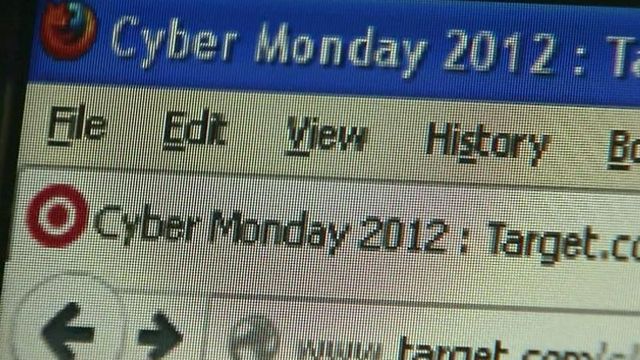Cyber Monday brings holiday deals, security risks
With big holiday savings for consumers, the online shopping event Cyber Monday also means big business for scammers and crooks.
Posted — UpdatedMillions of people are avoiding Black Friday crowds by shopping online on computers or smartphones, but experts are warning that convenience carries a risk.
"It only takes one time to infect a computer and have your identity stolen, your credit card stolen, your information – it happens," said Giovanni Masucci, president and senior digital forensic examiner for National Digital Forensics Inc. in Raleigh. "We see it all the time."
Masucci should know. It happened to him.
"I've done everything I could possibly do and did all my due diligence, but it could still happen," he said. "If someone wants to get in, they're going to get in to get your data."
This year, a new computer virus surfaced on Thanksgiving Day, just in time for Cyber Monday. It appears in emails with attachments that offer an unrealistic discount.
For example, Masucci said, a shopper might get an email that offers a television for $99. Open the attachment, and the computer is instantly infected – putting financial data such as credit card, bank account and social security numbers at risk.
"Scammers are getting very sophisticated," he said.
Here are some tips to avoid being an online shopping victim this holiday season:
- Update operating systems, web browsers, antivirus programs and Internet Security software on computers, laptops, smartphones, tablets or any other device that accesses the Internet
- Clear Internet history and cookies
- Clean out browser
- Use a credit card instead of a debit card
- Use different user names and passwords for each online shopping site
- Use strong passwords that include uppercase and lowercase letters, special characters and numbers
- Change passwords every 30 days
- Create email accounts specific to online shopping sites
- Avoid using public Wi-Fi networks
- Check for a lock symbol in the navigation bar before adding payment information
- Only use legitimate, reputable, known web sites for shopping
- Avoid deals that are too good to be true
- Use a pop-up blocker
- Be careful on tablet and smartphone apps
- Read up on known scams and threats circulating the web
- Check your credit report, especially throughout the holidays, but also year-round
- Use common sense
• Credits
Copyright 2024 by Capitol Broadcasting Company. All rights reserved. This material may not be published, broadcast, rewritten or redistributed.






